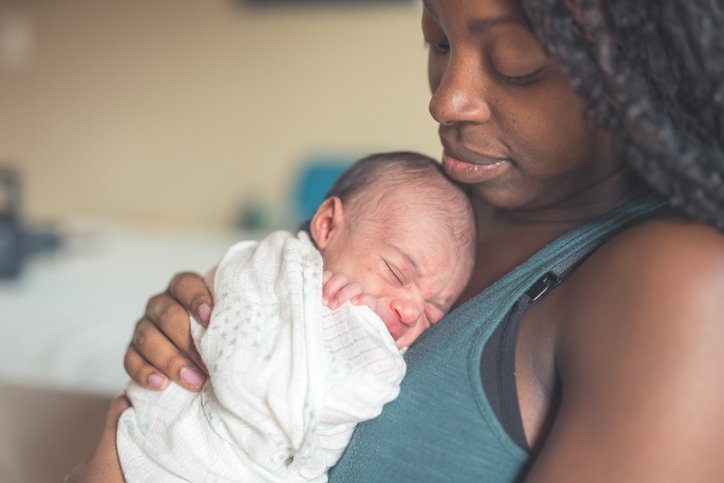Likely lower risks of adverse pregnancy outcomes from SARS-CoV-2 than previously feared

The risk of adverse pregnancy outcomes in women who tested positive for SARS-CoV-2 is likely lower than several earlier studies have suggested, a national study of all pregnant Swedish women tested for SARS-CoV-2 between March 2020 and January 2021 reports. The study, published in BJOG: An International Journal of Obstetrics and Gynaecology and led by researchers at Karolinska Institutet, shows that the association varies widely depending on the routines used for testing pregnant women.

“When we look at clinics that have tested all pregnant women, we see that the risks of adverse pregnancy outcomes after a positive test for SARS-CoV-2 are considerably lower than when we look at clinics that did not test all women,” says Professor Olof Stephansson at the Department of Medicine, Solna, Karolinska Institutet, and the study’s first author. “This means that selective testing, which is the most common testing procedure in Sweden for pregnant women, likely over-estimates adverse pregnancy outcomes in women with positive test results.”
The virus SARS-CoV-2 can cause the disease COVID-19, but individuals can also carry the virus without symptoms of illness. According to the researchers, a plausible interpretation of the differences is that pregnant women with complications are tested more often than those without complications, resulting in inflated risks when testing is not universal. Furthermore, pregnant women with asymptomatic or mild infection tend to have fewer complications than women with severe COVID-19 and are therefore tested to a lesser degree. Other health factors, such as obesity or diabetes, could also influence both the risk of delivery complications and decisions about who gets tested.
Analysed more than 88,000 pregnancies
Using Swedish registry data, the team of researchers from Karolinska Institutet, Örebro University and Sahlgrenska University Hospital, amongst other institutions, were able to analyse outcomes of a total of 88,593 pregnancies between March 11, 2020, and January 31, 2021, of which barely 17 percent were delivered at clinics that tested all pregnant women.
At hospitals that tested all pregnant women close to delivery, no statistically significant differences were seen between infants born to test-positive and test-negative mothers regarding stillbirths and low Apgar scores (which evaluate the condition of the infant immediately after birth). Conversely, at hospitals with selective testing, the statistics suggested that infants born to test-positive mothers had a four-fold higher risk of stillbirth and more than double the risk of low Apgar scores compared with infants born to mothers who tested negative or were not tested at all.
In the case of universal testing, infants born to test-positive mothers were twice as likely to require neonatal care as those born to test-negative mothers. This may be compared with the statistical outcomes for selective testing, which indicated a three-times higher risk of neonatal care for infants born to test-positive mothers. The risk of preterm birth was also higher in the case of selective testing compared with universal testing.
“Our findings indicate that infants born to mothers with SARS-CoV-2 infection have somewhat higher risks of neonatal care and preterm birth, but that the risks of stillbirth and low Apgar scores do not differ significantly from infants born to test-negative women,” Olof Stephansson says. “We lacked data on how severe the infections were, and severe COVID-19 has previously been shown to correlate with a higher risk for mother and infant during pregnancy and delivery. At the same time, it is important to note that most deliveries are associated with favourable outcomes even if the mother tests positive for SARS-CoV-2.”
Historical comparison
When the researchers compared outcomes during the pandemic with the preceding five years (March 2015–January 2020), they found no statistically significant differences in stillbirth or low Apgar scores, but a slightly lower risk of preterm birth during the pandemic (4.7 percent compared with 4.9 percent), which was driven by a lower risk of spontaneous preterm births. The risk of neonatal care admission was slightly higher during the pandemic (8.3 percent) compared with the preceding five years (8.1 percent).

“The differences versus historical comparators are very small, which is interesting given that there has been a fear of increased risks at the population level during the pandemic,” says Professor Martin Neovius at the Department of Medicine, Solna, Karolinska Institutet and the study’s last author. “One possible explanation to the admittedly very small but still lower proportion of spontaneous preterm births could be that mothers have had fewer other infections and perhaps also less stress during the pandemic. The marginally higher proportion of newborns in neonatal care may partly be attributed to a desire to pay extra attention to infants born to test-positive mothers, especially early in the pandemic when the experience of caring for such babies was still limited.”
The study was financed by the Swedish Society of Medicine, NordForsk, grants from a regional agreement on clinical research between Region Stockholm and Karolinska Institutet (ALF) and the Childhood Foundation of the Swedish Order of Freemasons.
Publication
“SARS-CoV-2 and pregnancy outcomes under universal and non-universal testing in Sweden: register-based nationwide cohort study”, Olof Stephansson, Björn Pasternak, Mia Ahlberg, Helena Hervius Askling, Bernice Aronsson, Emma Appelqvist, Jerker Jonsson, Verena Sengpiel, Jonas Söderling, Mikael Norman, Jonas F. Ludvigsson, Martin Neovius. BJOG: An international Journal of Obstetrics & Gynaecology, version of record online Nov. 18, 2021, doi: 10.1111/1471-0528.16990.
